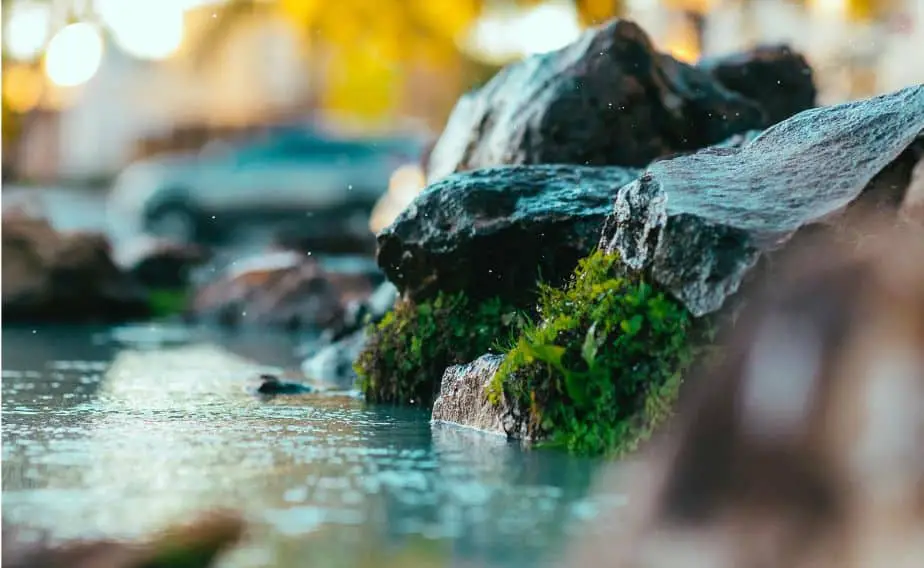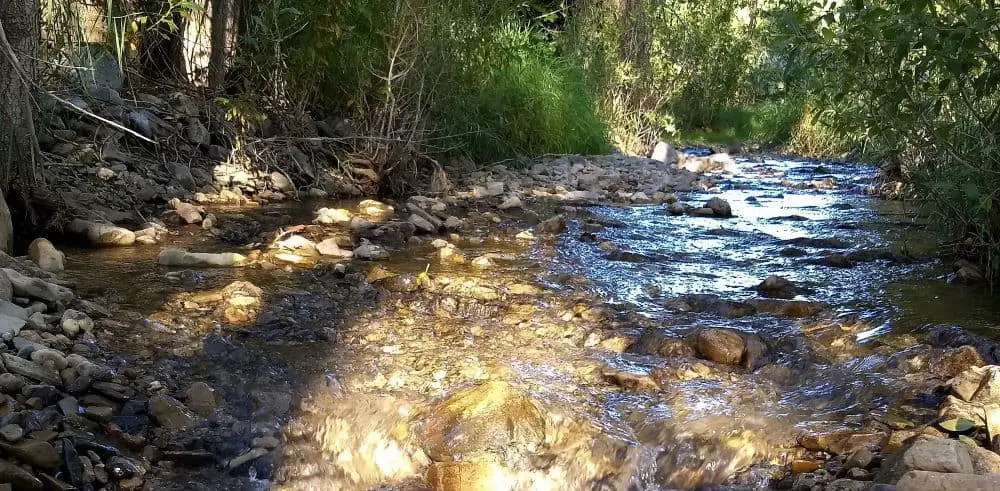When it comes to using natural resources such as lakes and rivers for your dishwashing, hand washing, and other needs there are a few things you need to know before doing so.
First is the fact that natural water resources typically carry bacteria and other parasites that you do not want to ingest in your body. Such as animal feces, animal remains, and really anything you can think of.
This now leaves us with the question as to whether or not it is actually safe to use lake or river water for really anything whether it be dishes or just simply washing your hands. Well, given the fact that when you go camping typically if you have access to a natural water source such as a lake or river typically you want to play in it, or at least use it. Am I right?
Well, the biggest safety concern that most have is whether or not it is safe? In most cases it typically is. But this all depends on what intend on using the water for? Typically it is safe to play in the lake or river you are near, as long as there are no signs indicating a potential danger.
But that is in terms of if you intend to play in, or use the water as an activity. However, if you intend to ingest the water, whether it be by simply drinking it, or cooking with? Or maybe you just intend to use it on your cookware/dishes with intentions of cleaning your dishes?
Either way, if you intend to use the natural resource as a means to clean or cook with? You need to be sure to either disinfect your cookware before reusing it or be sure to purify the water before you use it, whether it be in your food, drank or simply used to do your dishes.
The Big Question Many Have:
Is It Safe To Wash Dishes In Lake & River Water?

In most cases, it is. However, you must make sure to either disinfect the water before using it to wash your dishes. or simply disinfect the dishes or cookware after you have finished rinsing off the dish. As Well As, Minimize the contaminants in the water by using water from a flowing source. Such as a river.
But before ever using water from a natural resource make sure that you know whether or not it is safe to actually use. Because some areas will develop bacteria in the water that is not native to the area. Typically this occurs kind of like a sickness would for humans. Transmission, at its finest.
Typically due to an instance such as someone using their boat in one lake and taking it to another a few days later. The bacteria or fungus from the original lake the boat was first used at, was still alive at the point when they took it to the next lake. This thing caused the transfer of the bacteria or fungus to a new lake that originally was not infected.
Though, in most cases, heat would kill anything that was in the water it is always good to know what you are dealing with.
How To Wash Dishes In Lake Or River Water
Typically it is always best practice to wash your dishes at least 200 feet away from any nearby natural water source. This will keep any contaminants that come off of your dish from flowing into the open water. Things such as food, oils, grease…
Ideally, it is best if you have some sort of container to which you can put water in, that will allow you to carry it the distance (200 feet) so you don’t contaminate the water source.
Once you are an adequate distance away you can then begin cleaning your dishes. However, it is before this point that you have to decide whether or not you are going to disinfect the water that you use? Which needs to be done beforehand. Or if you are going to disinfect a dish afterward?
For An In-depth look at How to do dishes in the backcountry check out this post. It will walk you through the different methods for doing so, as well as how each method can be implemented.
Below we will be going into how you can do so with both methods.
How to make Lake &/Or River Water Safe To Use
Obviously, if you intend to use lake, river water or any natural water source alike. Whether it be for dishes or just simply to drink you need to make sure that you take the proper precautions beforehand.
Given the fact that we are mainly focusing on doing dishes with lake or river water, you need to decide whether or not you are going to disinfect your dish afterward, or disinfect the water beforehand?
Obviously, in order to disinfect the water, you will need to heat it. You can do this by simply using a pot or pan along with a stove. Or if you’re really roughing it you can use the campfire.
But if you intend to disinfect your dish afterward? You will then have to do so accordingly. By simply heating your dishes and other cookware using the firepit.
To Purify Water, Simply Boil it for at least 3 minutes, then let cool. For more on how to Boil water check out my latest article “How To Boil Water Over A Fire” where we dive deep into the topic of boiling and purifying water over a campfire. For related information on purifying water refer to this post.
However, this method doesn’t work for all dishes and/or cookware given the fact that not all dishes are created equal. Meaning that your plastic plate is not going to be able to handle the heat like your stainless steel pot or pan…
In this case, you will have to resort to other methods. Such as simply using a disinfectant utensil wipe or something similar.
But if you are going to be dealing with this is the can’t be heated later on it is probably best to disinfect the water you use beforehand. As this will allow you to wash your dishes without the worry of disinfecting them later. As well as, typically it’s easier to wash dishes with hot water vs. Cold water. Heating the water to a boil for an extended period of time you will likely have that water plenty hot! Truly it is probably best that you let it cool for an extended period of time. As you run the risk of harming yourself if you don’t wait long enough.
Conclusion
Doing dishes using natural water sources does have it’s risks at times because you can’t always be sure as to what is in the water. But given the fact that you are not drinking the water, but simply rinsing your dishes in it you lessen your risk quite substantially. However, that is only if you take the proper precautions in order to either purify the water or disinfect a dish after you have cleaned it in the water.
Like I said above, you don’t know what could be lurking in that water so it is always good practice to either disinfect the water you use beforehand or disinfect a dish afterward.
This will help you to stay safe, lessen the likelihood of any illness in the near future.
I hope this article helped you, and answer your question. If you have any other questions, comments, or concerns please do be sure to leave them below as I’m always happy to hear from my readers!

